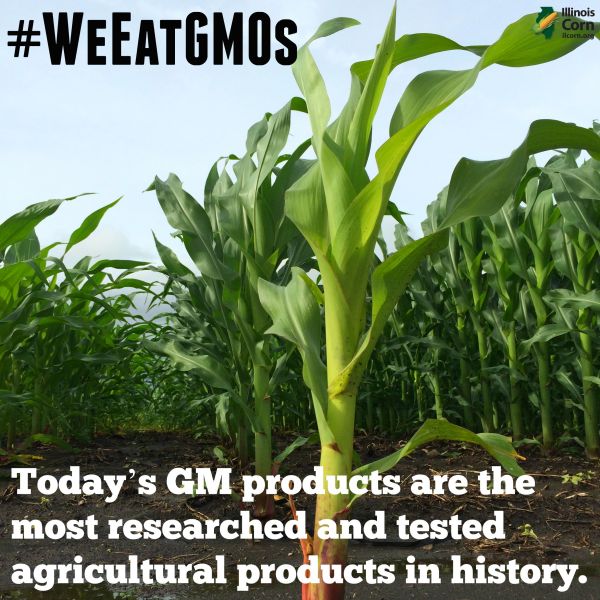The Benefits of GMOs
Welcome to our comprehensive guide on the benefits of GMOs. In this article, we will delve into the numerous advantages that genetically modified organisms (GMOs) bring to various aspects of our lives. From increased crop yields to enhanced nutritional value, GMOs have revolutionized the agricultural industry. Join us as we explore the fascinating world of GMOs and uncover their positive impact on our society.
Higher Crop Yields
One of the most significant benefits of GMOs is their ability to increase crop yields. Through genetic engineering, scientists have developed crops that are resistant to pests, diseases, and harsh environmental conditions. This resilience allows farmers to protect their crops and achieve higher productivity. As a result, GMOs contribute to food security by ensuring a stable and abundant supply of crops.
Enhanced Nutritional Value
GMOs have also been instrumental in improving the nutritional content of various food crops. Through genetic modification, scientists have successfully enhanced the levels of essential nutrients in staple crops, such as rice and corn. This biofortification process helps combat nutritional deficiencies, especially in regions where access to diverse diets is limited. By fortifying crops with vital vitamins and minerals, GMOs have the potential to address malnutrition and improve public health.
Reduced Environmental Impact
Another notable benefit of GMOs is their potential to reduce the environmental impact of agriculture. By engineering crops to be resistant to pests and diseases, farmers can significantly reduce the use of chemical pesticides and herbicides. This reduction in pesticide application not only minimizes the release of harmful chemicals into the environment but also lowers production costs for farmers. Additionally, GMOs can be designed to require less water and tolerate drought conditions, conserving precious water resources in regions prone to water scarcity.
Improved Crop Quality
GMOs can improve the overall quality of crops, making them more desirable for consumers. Genetic engineering allows for the modification of traits related to taste, texture, and appearance. For instance, GMOs have been developed to delay fruit ripening, thereby extending their shelf life and reducing food waste. By enhancing crop quality, GMOs enable farmers to meet consumer demands for visually appealing and flavorful produce.
Increased Farming Efficiency
Genetically modified crops can also enhance farming efficiency by reducing the time and resources required for cultivation. For example, GMOs can be engineered to be resistant to specific herbicides, allowing farmers to control weeds more effectively. This trait simplifies weed management practices and saves farmers valuable time and effort. Moreover, GMOs can be designed to be more tolerant of specific environmental conditions, enabling farmers to cultivate crops in regions previously deemed unsuitable.

As we conclude our exploration of the benefits of GMOs, it becomes evident that these genetically modified organisms offer immense potential for improving agricultural practices and addressing global challenges. From increasing crop yields and enhancing nutritional value to reducing environmental impact and improving farming efficiency, GMOs have proven to be a valuable tool in the pursuit of sustainable and resilient food systems. It is crucial to continue research and development in this field to unlock the full potential of GMOs and ensure a brighter future for generations to come.
Frequently Asked Questions about the Benefits of GMOs
1. What are GMOs?
GMOs, or genetically modified organisms, are living organisms whose genetic material has been altered using genetic engineering techniques.
2. How are GMOs beneficial?
GMOs offer several benefits such as increased crop yields, enhanced nutritional content, improved resistance to pests and diseases, and reduced environmental impact.
3. Do GMOs help in addressing world hunger?
Yes, GMOs have the potential to address world hunger by increasing crop productivity and improving the nutritional value of food, ensuring more food is available to feed the growing population.
4. Are GMOs safe to consume?
Extensive scientific research has shown that GMOs currently on the market are safe to consume. They undergo rigorous testing and regulatory processes before being approved for human consumption.
5. Can GMOs reduce the use of pesticides?
Yes, GMOs can reduce the use of pesticides as they are often engineered to be resistant to pests and diseases, reducing the need for chemical pesticides.
6. Do GMOs have any environmental benefits?
Yes, GMOs can have environmental benefits. By reducing the need for chemical pesticides and herbicides, GMOs can help minimize environmental pollution and protect biodiversity.
7. Are GMOs more nutritious than non-GMOs?
GMOs can be engineered to have enhanced nutritional content, such as higher levels of vitamins or minerals. However, the nutritional value of a GMO depends on the specific modification made.
8. Can GMOs help in developing drought-resistant crops?
Yes, GMOs can be engineered to have increased tolerance to drought conditions, which can help in developing crops that can thrive in arid regions and contribute to food security.
9. Do GMOs have long-term effects on human health?
Scientific studies have shown that GMOs currently on the market do not have any long-term negative effects on human health. They are subject to rigorous safety assessments.
10. Are GMOs regulated?
Yes, GMOs are regulated by various government agencies to ensure their safety for human consumption and the environment. These regulations vary across countries.




